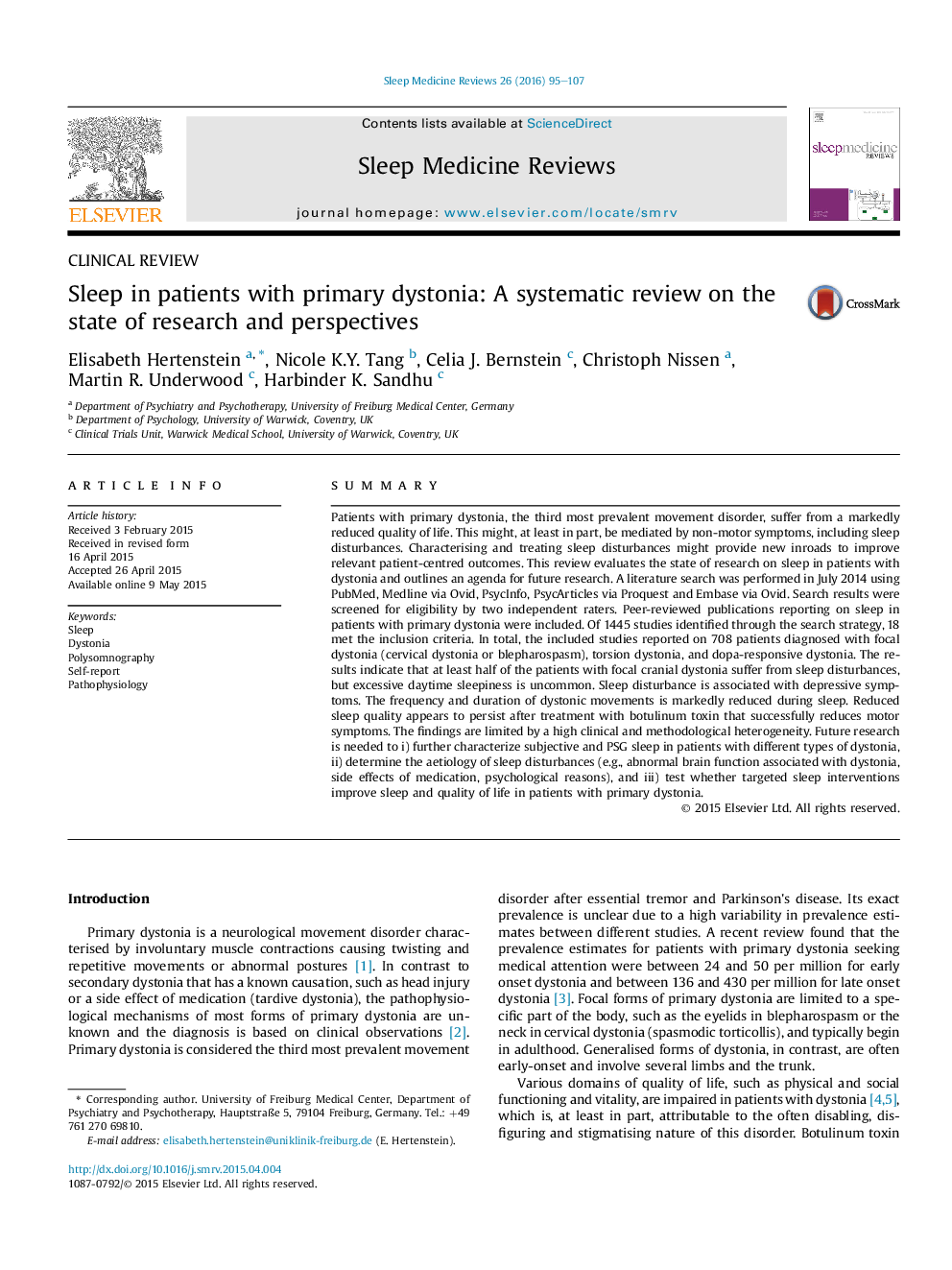| کد مقاله | کد نشریه | سال انتشار | مقاله انگلیسی | نسخه تمام متن |
|---|---|---|---|---|
| 3091334 | 1581358 | 2016 | 13 صفحه PDF | دانلود رایگان |
SummaryPatients with primary dystonia, the third most prevalent movement disorder, suffer from a markedly reduced quality of life. This might, at least in part, be mediated by non-motor symptoms, including sleep disturbances. Characterising and treating sleep disturbances might provide new inroads to improve relevant patient-centred outcomes. This review evaluates the state of research on sleep in patients with dystonia and outlines an agenda for future research. A literature search was performed in July 2014 using PubMed, Medline via Ovid, PsycInfo, PsycArticles via Proquest and Embase via Ovid. Search results were screened for eligibility by two independent raters. Peer-reviewed publications reporting on sleep in patients with primary dystonia were included. Of 1445 studies identified through the search strategy, 18 met the inclusion criteria. In total, the included studies reported on 708 patients diagnosed with focal dystonia (cervical dystonia or blepharospasm), torsion dystonia, and dopa-responsive dystonia. The results indicate that at least half of the patients with focal cranial dystonia suffer from sleep disturbances, but excessive daytime sleepiness is uncommon. Sleep disturbance is associated with depressive symptoms. The frequency and duration of dystonic movements is markedly reduced during sleep. Reduced sleep quality appears to persist after treatment with botulinum toxin that successfully reduces motor symptoms. The findings are limited by a high clinical and methodological heterogeneity. Future research is needed to i) further characterize subjective and PSG sleep in patients with different types of dystonia, ii) determine the aetiology of sleep disturbances (e.g., abnormal brain function associated with dystonia, side effects of medication, psychological reasons), and iii) test whether targeted sleep interventions improve sleep and quality of life in patients with primary dystonia.
Journal: Sleep Medicine Reviews - Volume 26, April 2016, Pages 95–107
